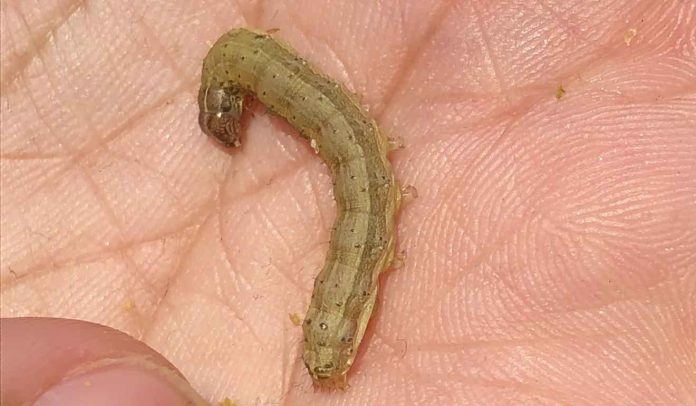Fall armyworms, a long-time American pest, are munching their way around the globe, now raising alarm in Asia after entrenching themselves in Africa.
The insect was first reported outside the Americas in 2016 – in Africa, where it has infested up to half of some crops of maize, sorghum and millet. It’s now spread through Yemen and South Asia to Thailand and China.
This new arrival to her territory worries Uraporn Nounart, a specialist on farm pests at Thailand’s Department of Agriculture.
“We never had this one before. They just were found late last year and in January in this area. It’s a big problem,” she said while visiting farms recently in Kanchanaburi province, northwest of Bangkok.
The worms can cause damage at all stages of a corn crop, but the worst may be when the larvae turn sweetcorn cobs to mush.
The incursions of this alien species threaten to upend the balance between costs and returns for farmers in Thailand and elsewhere. Pesticides are costly, toxic and do not always work.
In its native regions, from Argentina to northern Canada depending on the season, the bug’s natural enemies – predators, parasites and pathogens such as bacteria or viruses – help keep it in check.
But the new habitats may lack some of those defences, according to the United Nations’ Food and Agricultural Organisation, which is convening a conference in Bangkok this week to help share information and strategies on battling the pest.
Keeping it in check is an urgent priority: even though Asia is mostly known for rice growing, maize is an important staple crop and crucial source of feed for poultry and livestock.
In the cornfields in Kanchanaburi, Thailand, there were armyworms in all stages of the crop, from seedlings to full-grown.
Some local farmers were working hard to limit their losses by pulling the tops off stalks grown for baby corn and discarding them to limit how much damage the worms could do. That tactic causes the plant to sprout new ears that can be harvested later.
Organic farmers eschew many chemicals so they can sell the waste corn stalks as cattle fodder. Spraying with biological substances such as fungi, and thread worms that may act as parasites for armyworms, can help, but some fields still lost about one-third of the first baby corn harvest.
“We’ve never seen anything like this,” said one farmer called Sanae.













